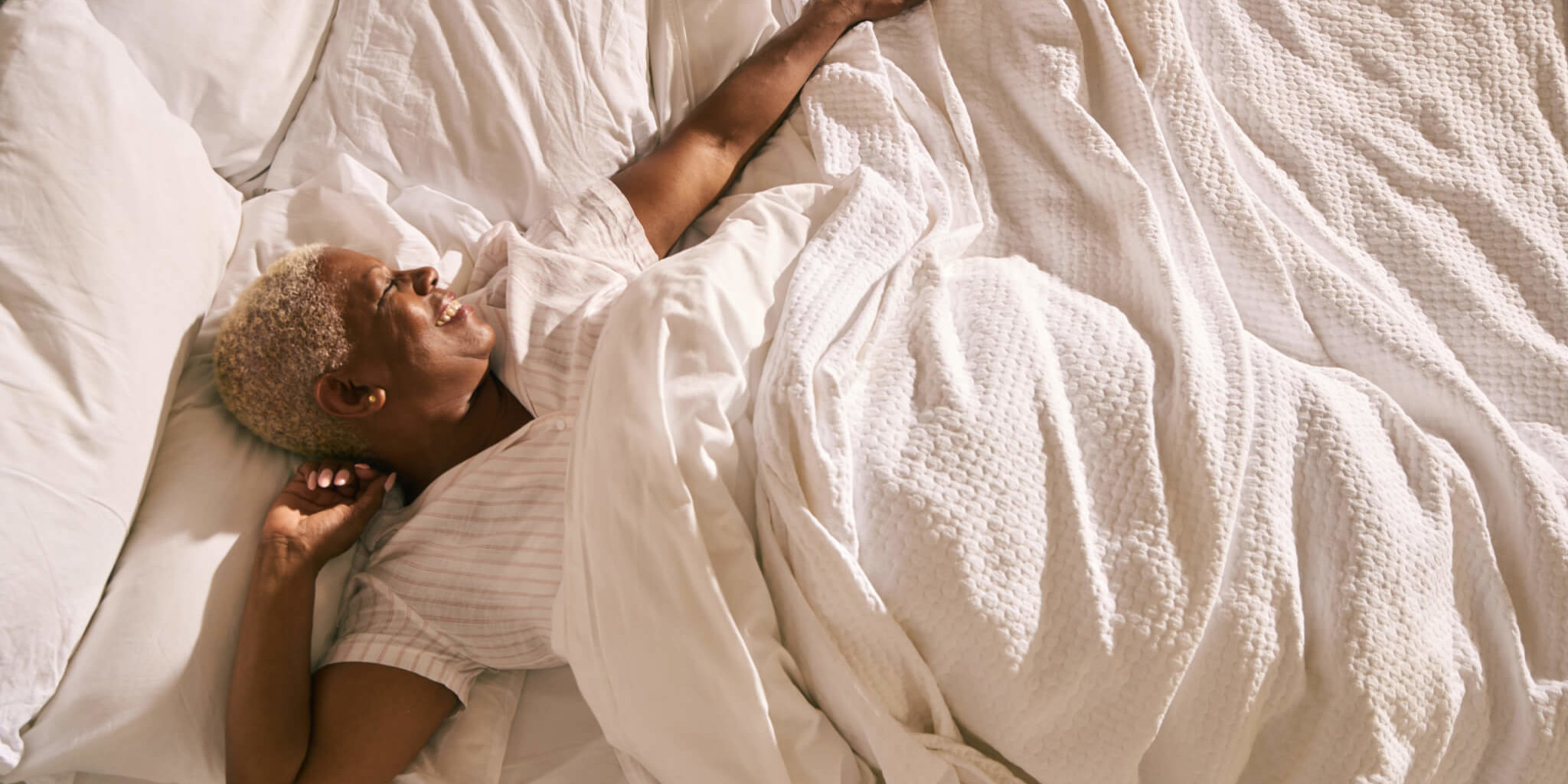Who doesn’t like a good night’s sleep? Seems like a no-brainer when you can absolutely feel the difference when you have one. But many people today are struggling to sleep well. According to the recent Shaklee U.S. Health and Wellness Study, nearly 2 of 3 (60%) millennials have trouble falling asleep at night and half (51%) wake up several times throughout the night. For 25% of respondents, it takes 30 minutes or more to fall asleep, and 83% of respondents have tried tactics to improve sleep.
Sleep directly affects your mental and physical health, daytime energy, productivity, emotions, and even your weight. This means getting the best sleep you possibly can is important! Here are a few simple but crucial changes you can make to your daily routine to help you get a better night’s sleep.
Keep a consistent sleep schedule.
Waking up and going to sleep at the same time every day helps your body’s internal clock to adjust and optimize the quality of your sleep. You know this is happening when you’re able to wake up without the help of an alarm. We know it’s easy to sleep in on weekends, but it makes it harder for your body to adjust when your weekday sleep schedule is very different! If you need to make up for lost sleep during the weekend, try taking a daytime nap instead that’s no longer than 20 minutes.
Make yourself comfortable.
It’s much easier to sleep when your body feels relaxed. Take a warm bath or shower before you sleep to help relax your muscles. Optimize your bedroom environment: Adjust the temperature, dim or turn off the lights, and make sure your bed is comfortable. Then put on your favorite PJ’s and sleep tight!
Power down your devices.
Break the habit of checking social media or watching one last show before turning in. You want to avoid the blue light exposure from your screens within 1–2 hours of your bedtime. Both the blue light and the plug-in to your social or work life can make it harder for your brain to wind down and relax before sleep.
Be mindful about what you eat and drink.
In the study above, over half of the respondents (51%) said that they wake up several times during the night. And believe it or not, food and drinks may be the culprits! Generally, you want to avoid eating and drinking within 2 hours of your bedtime. Meals and liquids can cause stomach trouble and/or frequent bathroom trips throughout the night. Alcohol is another no-no; while some people like to drink wine before bed to help them fall asleep, it can also cause you to wake up in the middle of the night. When it comes to caffeinated drinks, it’s best not to drink them after 4 p.m. If you really feel like you need a warm beverage before bed, try caffeine-free herbal teas or warm water with lemon instead!
Get natural support for sleep.
There are a variety of nutritional and herbal options that support sleep; for example, calcium and magnesium are two minerals that help calm and relax the brain and body. Chamomile is an herb that has been used for thousands of years to help promote calmness and improve sleep. Another natural sleep aid is valerian, an herbal root that is also used for calming and relaxation. Try adding these to your diet. Supplementation is a good solution as well; in the study above, 47% of respondents reported trying sleep supplements to sleep better at night. A good option is Dream Serene™, which contains melatonin and a proprietary blend of valerian, lemon balm, and L-theanine to promote more restful sleep.*
With the busyness of life, it’s hard to sleep well every night, but follow these tips and you’ll be able to sleep better more often. And remember—better sleep leads to better health.
| *This statement has not been evaluated by the Food and Drug Administration. This product is not intended to diagnose, treat, cure, or prevent any disease. |






